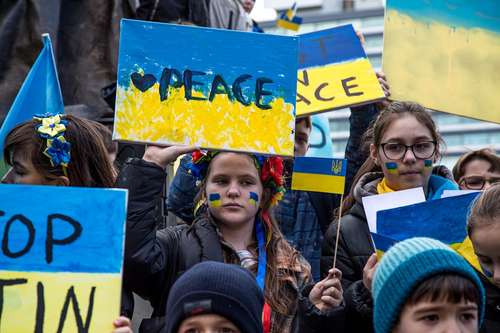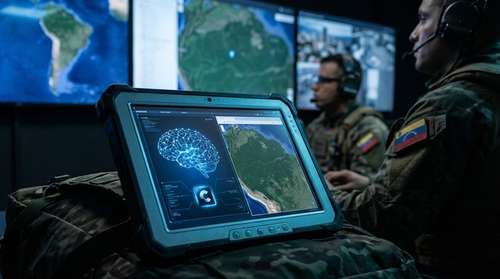Trump’s Quest for Legacy in the Ukraine Conflict
Former President Trump has always been a figure who thrives in the spotlight. His actions in relation to the Ukraine conflict have sparked debate, with many wondering if his drive to broker peace stems from a genuine desire to end the Ukraine war or simply from an urge for personal recognition. It’s a topic that grabs attention—mixing global politics with personal ambition, and it forces us all to ask: what really fuels his diplomatic efforts?
Looking at his latest proposals, it seems obvious that Trump is eager to seal his reputation as the peacemaker. Some say his mission is second to legacy, where securing a permanent mark on U.S. foreign policy might matter more than the conflict resolution itself. Analyses of his approach reveal an intertwining of political influence and the need for international recognition. We are left pondering how his diplomatic maneuvers are intertwined with his larger-than-life personality.
Understanding Trump's Motivation
In this section, we dive into what might be motivating Trump in his attempts to shape the Ukraine conflict narrative. Many insiders feel that his flirtation with peace negotiations is less about the war and more about cementing his personal brand in global politics.
When Trump speaks about the need for an end to the Ukraine conflict, it isn’t just a call for peace—it’s a statement about his own capabilities. His proposals are peppered with references to a new type of diplomacy, one that harkens back to the bold days of the Trump administration. Some observers argue that it’s an effort to create a legend, a moment where he is seen not only as a businessman and a politician but also as a conflict resolver on the world stage.
His rhetorical style is quite vivid; he claims a seat at the table of international peacemaking, as if saying, “I have the knack for solving problems that seem beyond reach.” Such statements are loaded with the kind of bravado that appeals to a following eager for dramatic change. It is this mixture of ambition and self-promotion that makes his approach controversial among experts and critics alike.
Negotiation Strategies and International Relations
This section delves into Trump's specific negotiation tactics and their implications on U.S. foreign policy and international relations. His methods have been described as unorthodox, often blending sharp rhetoric with a direct call to international recognition.
Trump's negotiation style could be thought of as a blend of high-stakes poker and an open invitation to dialogue. He doesn’t shy away from bold statements that some see as undermining typical diplomatic channels. Instead, he positions himself as the only person capable of brokering the right deal, appealing directly to global audiences. His approach—dubbed by some as Trump diplomacy—seems designed to capture headlines and influence global politics.
There is a recurring theme in his strategy: evoke a sense of urgency that resonates with international audiences. His actions remind us of the early days of peace talks, where personal charisma sometimes played as significant a role as formal policy frameworks. By inserting himself into the narrative, Trump is not just pushing a peace plan but also a claim to be a pivotal player in conflict resolution.
It’s like playing a high-wire act where every move to resolve the crisis is simultaneously a performance. Meanwhile, other world leaders are left trying to interpret his next step, weighing the potential benefits against the risks of having such an unpredictable hand in peace negotiations.
The Global Impact of Trump’s Diplomatic Efforts
Here, we look at how Trump's desire for recognition influences international relations and global politics. His actions have a ripple effect that touches on several key aspects of the Ukraine conflict and beyond, raising important questions about true conflict resolution.
Considering the state of global politics today, any bold move has a domino effect on international relations. Trump's push to be seen as a peacemaker, in many ways, is an extension of his trademark approach seen during the Trump administration—where the goal was as much about grabbing headlines as it was about shifting policy. When he advocates for peace negotiations, it’s not just about resolving the Ukraine conflict; it’s about reinforcing his image as a powerful influencer on the world stage.
This ambition has provoked varied responses among world leaders. Some are cautious, while others view it as a potentially destabilizing factor in an already volatile region. The Ukraine war has international implications, and any mediation by someone with a reputation for shaking up conventional diplomatic methods calls for a careful balance between genuine conflict resolution and political theatrics.
Others point out that Trump’s desire for international recognition might ironically complicate matters. When personal legacy becomes the focal point, the nuances of diplomatic efforts can get lost. It’s as if the global community is watching a show where every move is meant to impress, rather than simply resolve a conflict—creating a scenario where mutual trust and long-term strategy take a back seat to immediate acclaim.
Legacy and the Future of Trump Diplomacy
This section brings us to the question of legacy and how Trump’s actions might shape future U.S. foreign policy and diplomatic efforts in similar conflicts. It’s a fascinating thought experiment: can a desire for personal legacy coexist with effective conflict resolution?
The concept of legacy is paramount in American politics, and for Trump, every statement is another stroke on the canvas of his historical image. His involvement in the Ukraine conflict is viewed not only as a step towards ending the war but also as another chapter in the saga of his larger-than-life persona. By aligning himself with international recognition, he seeks to redefine what it means to be a diplomat in modern global politics.
Future strategies in similar conflicts might well take a page out of his playbook. His reliance on bold public statements and unconventional negotiation tactics could inspire a new wave of leaders who view personal branding as an integral part of diplomatic efforts. Yet, many analysts caution that this mingling of self-interest and policy could blur the lines of authentic conflict resolution.
Imagine a world where every peace negotiation is as much about securing a legacy as it is about the welfare of nations—a scenario that makes you wonder if the true cost of conflict resolution isn’t being overshadowed by the quest for prestige. It’s a debate that will likely continue to simmer in discussions of U.S. foreign policy and global peace negotiations.
Conclusion
In summary, Trump’s maneuver in the Ukraine conflict is a prime example of how personal ambition and political strategy can intersect. His drive for recognition and lasting legacy appears to be a key force behind his push for peaceful negotiations, even as experts debate its long-term impact on international relations. The blend of bold rhetoric, unconventional negotiation strategies, and a relentless desire for spotlight makes his approach both compelling and controversial.
As the world watches, one thing remains clear: the Ukraine conflict is more than just a geopolitical challenge; it’s also a stage for Trump’s quest for personal glory. Whether his efforts will lead to genuine peace or further complicate the dynamics of international recognition is a question that only time can answer. But one thing is for sure—this unique blend of ambition and diplomacy is set to leave an indelible mark on the annals of global politics.




